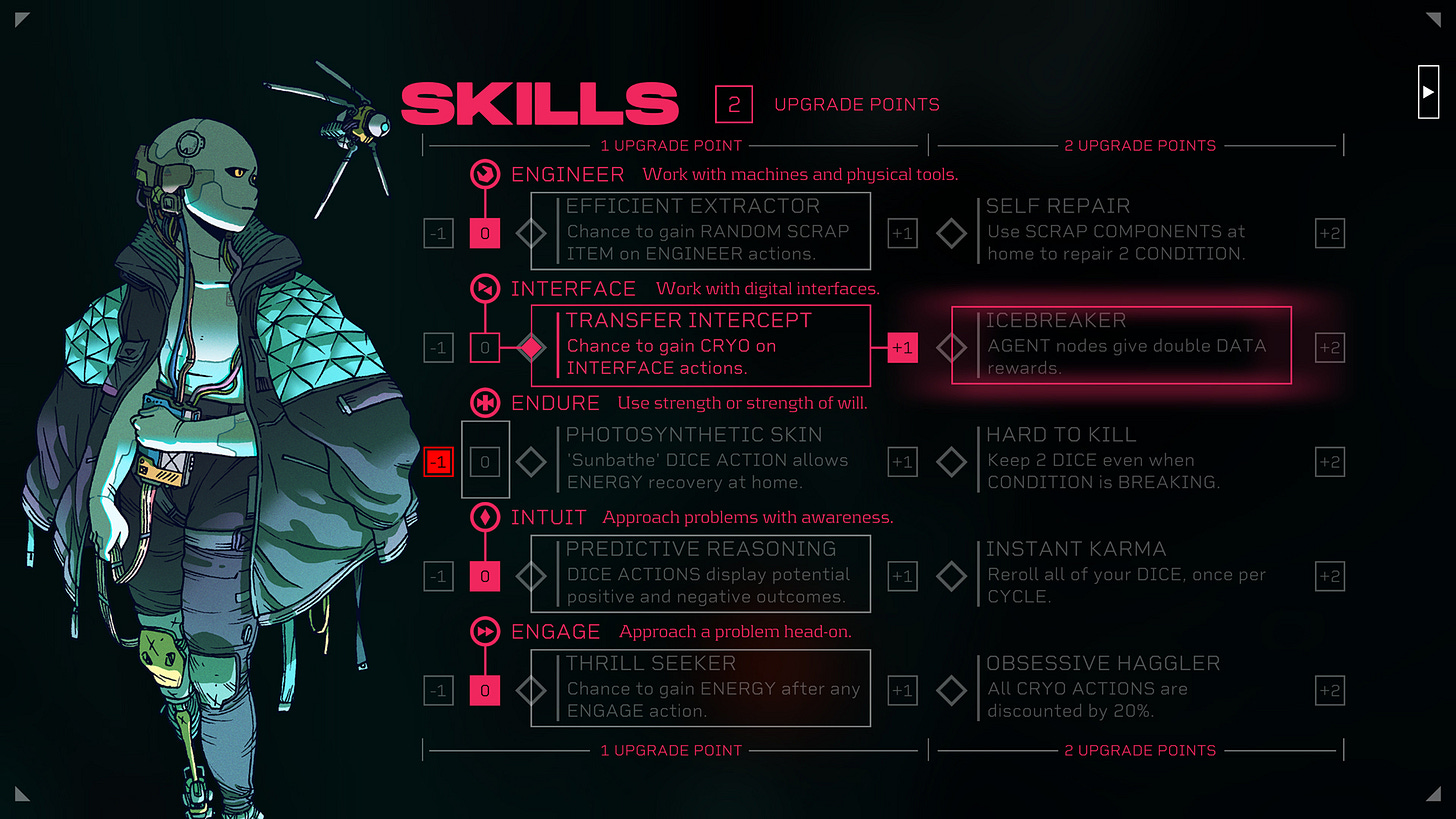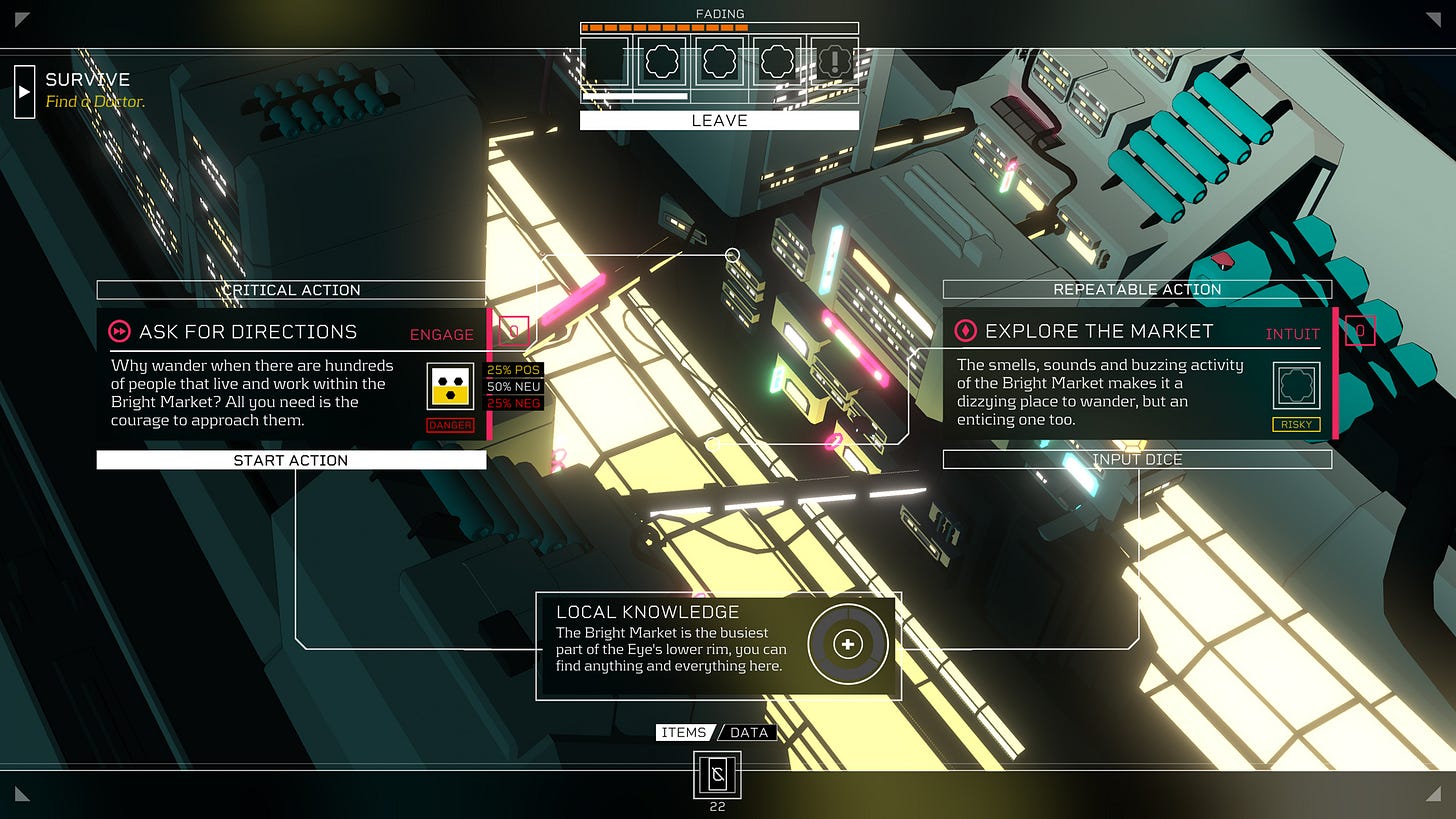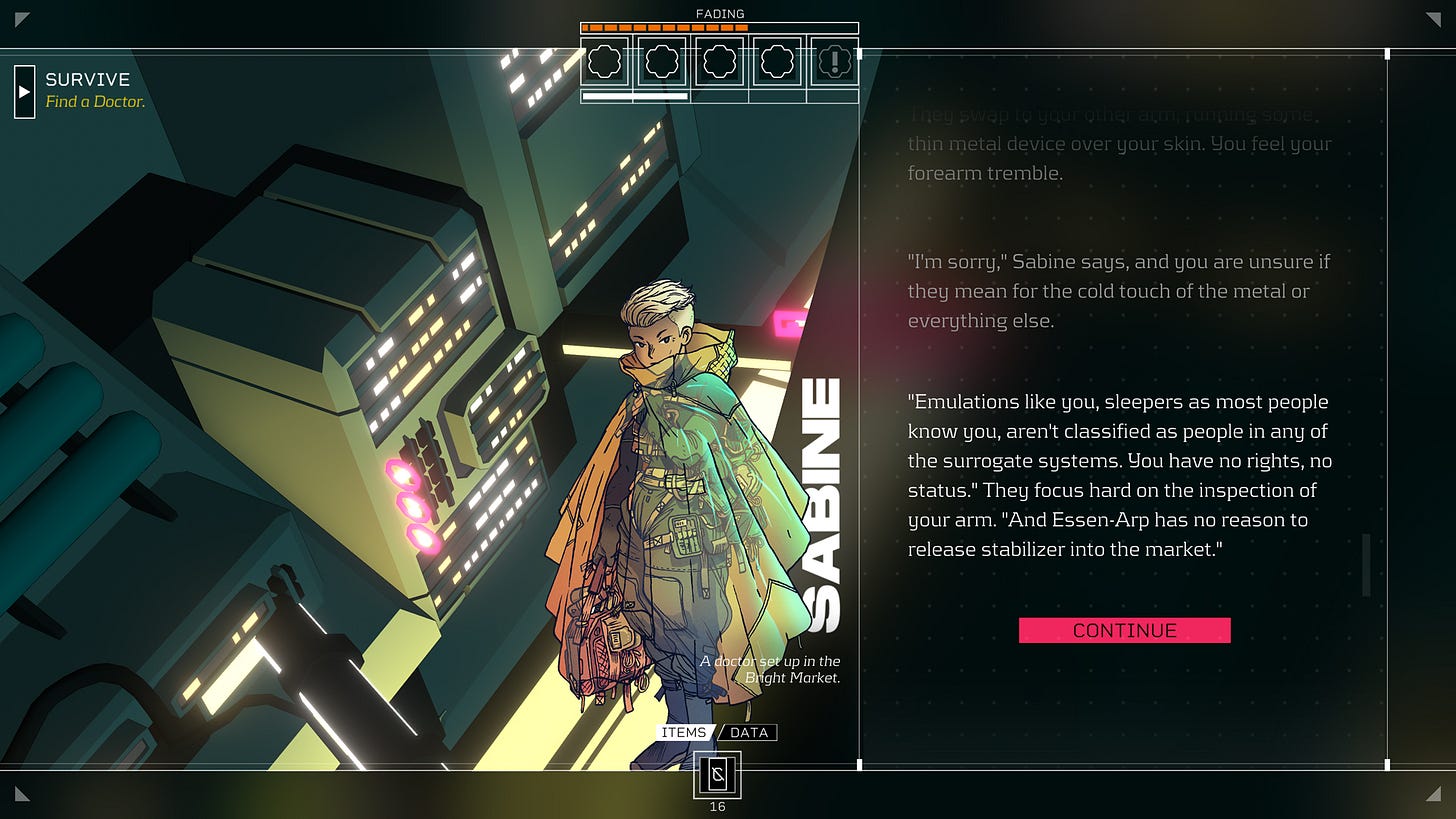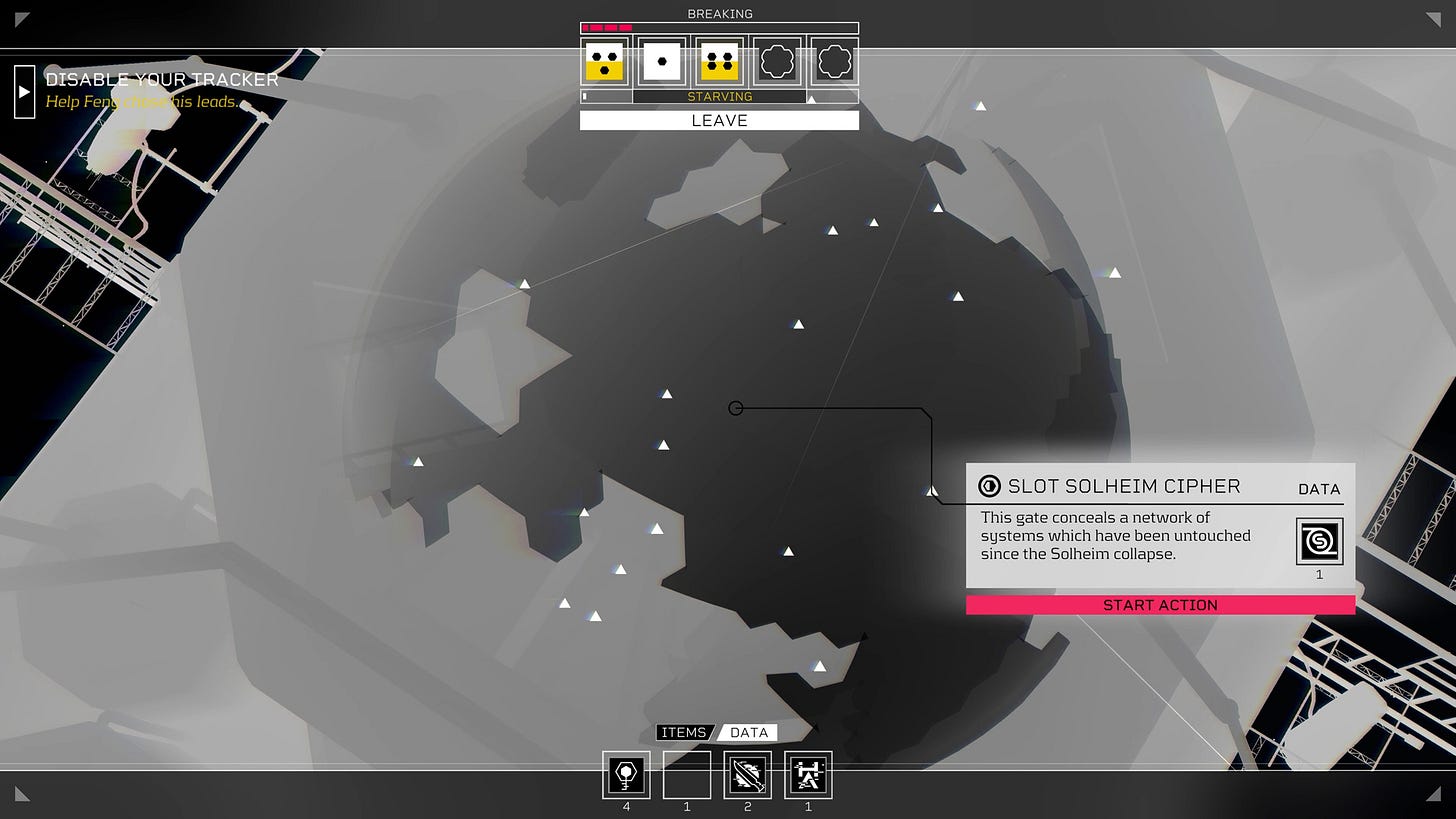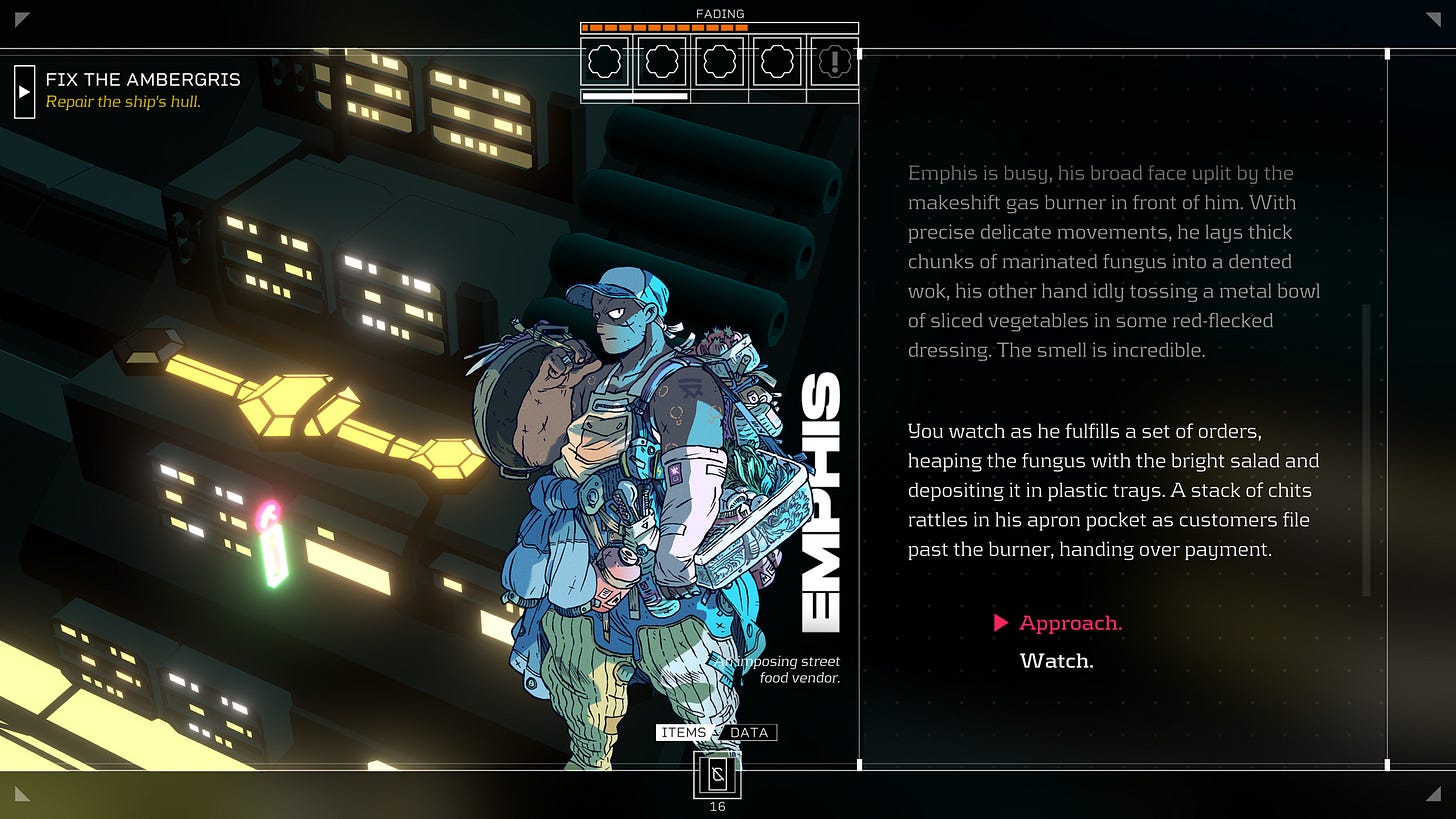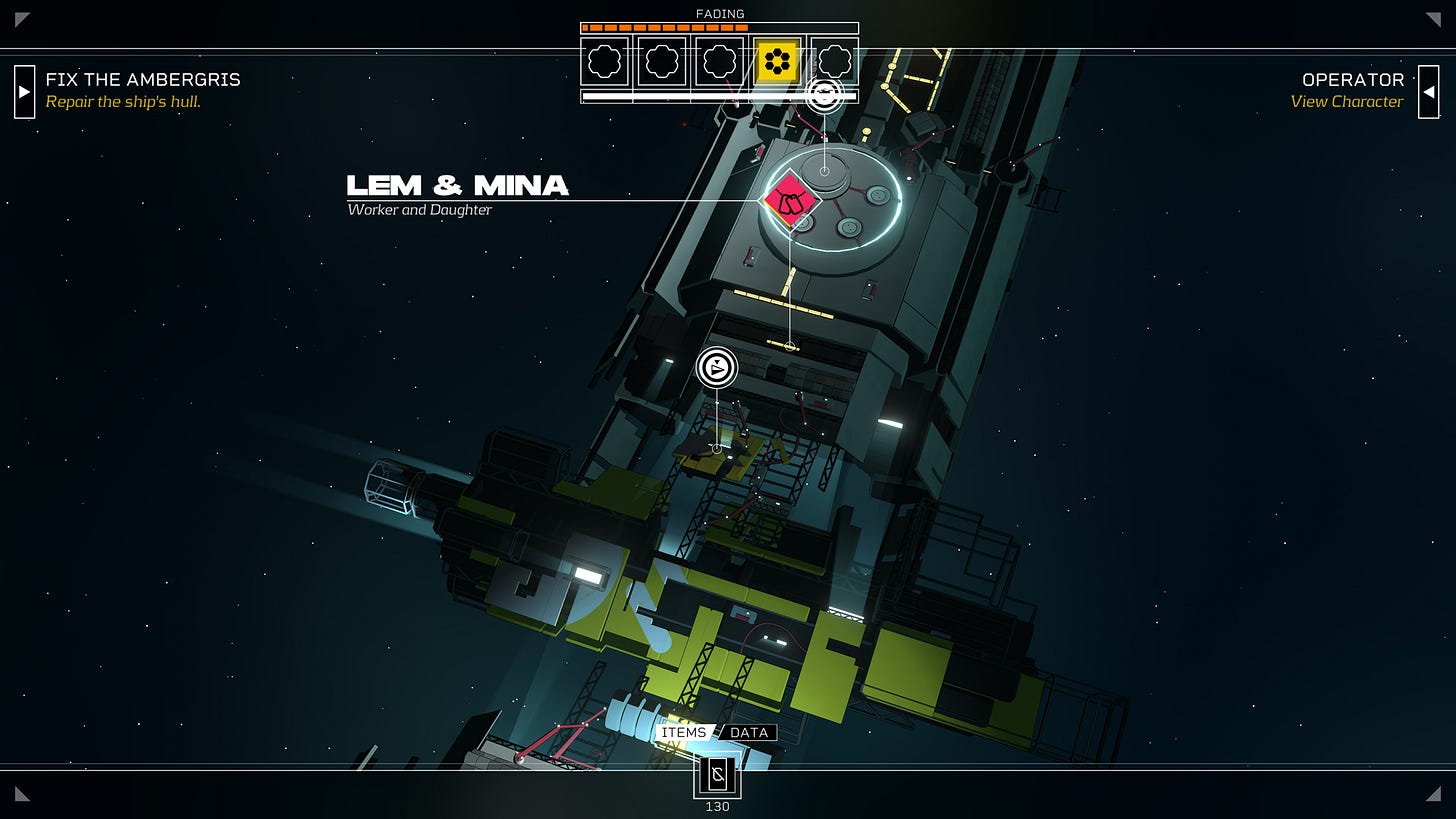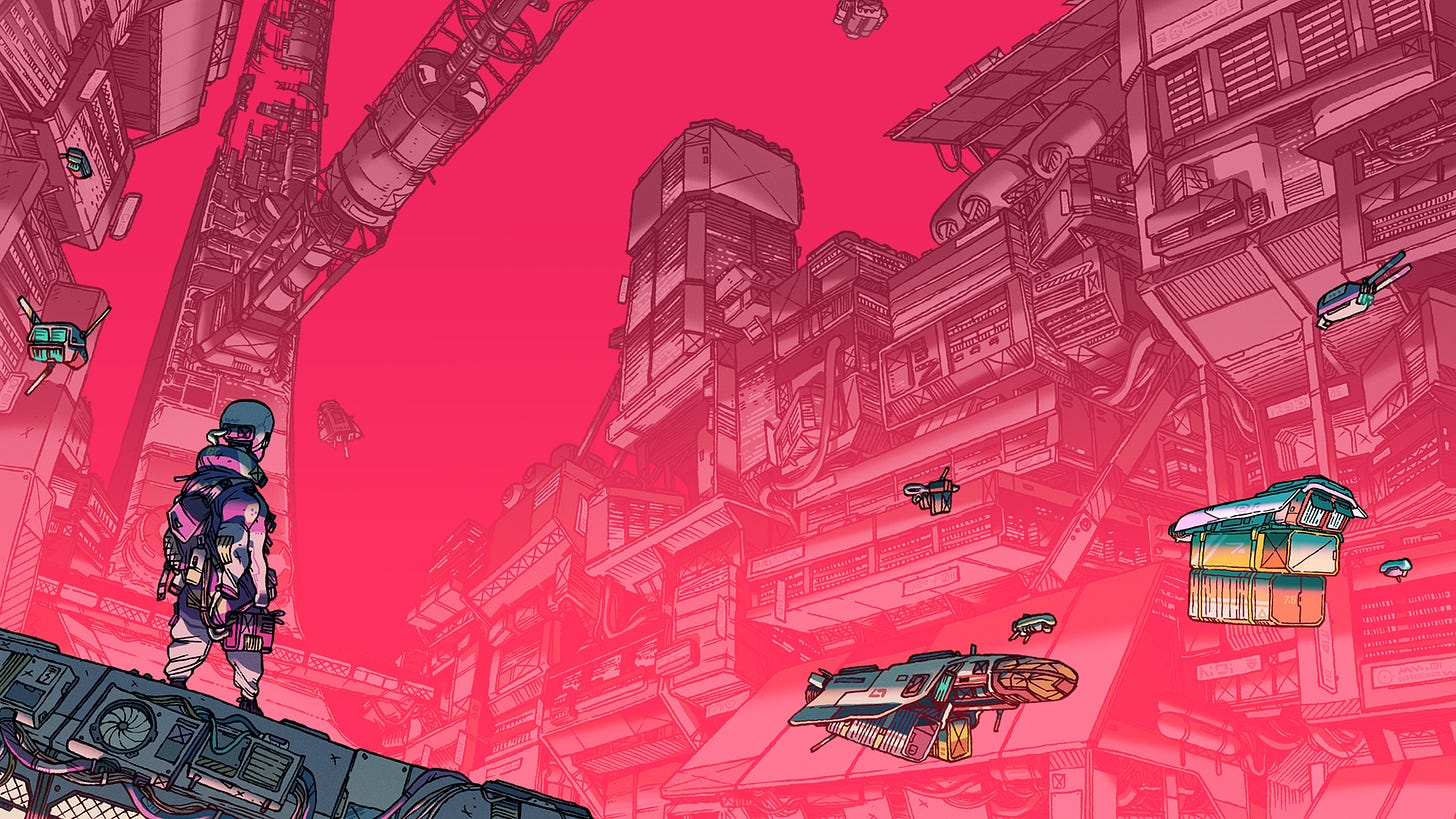Citizen Sleeper Review
...I'm just going to say it, don't sleep on this one.
Every year, there are a handful of sleeper (no pun intended) hit games that are adored by those who have played them but get very little attention from everyone else. Citizen Sleeper is one of those titles. I picked it up after some positive word of mouth, and it was a unique and refreshing experience compared to many of the games I’ve played over the last year. The game crafts a vivid and enthralling journey with very limited visual fanfare and instead opts to rely on the team’s expert storytelling to do all of the heavy lifting.
To set the stage, Citizen Sleeper is a sci-fi RPG where you play as a Sleeper. A Sleeper is effectively a person who was turned into a corporate slave and has had their consciousness uploaded into a corporate-owned android that is used for what I can only assume is never-ending labor. Our story opens as you have escaped the corporate coal mines, so to speak, and have landed in this bustling space city that is dealing with its own social and political struggles. The story is primarily driven by text. The game opted to forgo voice acting and instead only leverages some snazzy character art to help the player’s imagination.
The real gameplay comes in the form of a dice system similar to Dungeons & Dragons. The game is broken up into cycles (read days), and at the beginning of each cycle, you randomly roll a set number of dice. You can then use these dice to perform actions around the space station. The higher the dice you use, the more likely you are to get a positive outcome from your action; the lower the dice, the more likely you are to take some damage. Health in this game comes in the form of hunger and stability. Hunger will eventually affect stability, and the less stable you are, the fewer dice you have to roll each day.
That’s Citizen Sleeper in a nutshell. I wanted to make sure I did the gameplay justice because it’s a bit unorthodox, and it’s crucial to understanding the next part of the review.
This game is, to oversimplify it, a choose-your-own-adventure book with consequences. Sure, you could argue that’s most great RPGs, so what makes this different? Well, there is no golden path. The game gives you a brief tutorial and then tells you to survive. You are in complete control of what your process of surviving should look like. That was the beauty of this game. You really feel like you are, well, playing a role. The game does a great job of staying out of the way. It doesn’t tell you what to think; it just gives you the tools to make a partially informed decision. It throws curveballs at you in the form of random dice rolls and events that you then need to react to, given the resources at your disposal. You feel like every day is a surprise, and you are in the pilot’s chair, driving toward some unknown conclusion.
On paper, that sounds great, but this idea could easily fall apart in practice. It could be too boring, too confusing, or too difficult. The way they circumvent this is by giving you a large sandbox with excellent narrative beats waiting to be uncovered. The game constantly keeps you on your toes. There are over a dozen unique and important characters you can interact with, and they all have their pros and cons. The game actually goes out of its way to make most of these characters morally ambiguous, so you are constantly evaluating every relationship. Some characters will betray you or show a dark side to them that you didn’t initially see. Some characters will seem shady or closed off, but will open up if you put in the effort. Some characters will start and remain loyal during your entire journey with them. Remember, this is all conveyed through text dialogue as if this were a novel. Which means you pick up all of your cues from the conversation and narration. Your character’s inner monologue will tell you what a character’s face is conveying in a given moment, or if a character is presenting themselves as a threat. The character will say one thing, but your inner monologue may convey that their body language says another. The elite writing of this game really goes the extra mile to ensure the player sees what is not literally seen.
Couple that with the gameplay events, and we now have a winning formula. The game has you hanging on every letter of dialogue to set the stakes of a situation, and then they hit you with a timer for a task that needs to be done as soon as possible to get a positive outcome. You are then strategically planning your dice to maximize progression on a handful of different threads in several ongoing storylines. It’s something that on the surface looks quite straightforward and simple, but then becomes tense and complex as you get deeper into your series of missions. It’s just enough gameplay to enhance the main act, the story.
My favorite part of Citizen Sleeper is the fact that by the end of the game, you have crafted a story unique to you. Given the many options you are given to interact with characters and tackle missions, there are a ridiculous number of ways for a person’s story to play out. There are several unique endings, and you organically stumble upon all of them. Like I said at the beginning of the review, there is no golden path. The game doesn’t tell you what the end of the game looks like; you need to decide that on your own.
I really don’t have many bad things to say about the game. I would have loved to see some voice acting or maybe some animations or cutscenes tied to some of the bigger moments, but at the same time, I think that would also interfere with the version of this world I had been picturing in my head throughout the game. A larger series of more random events that kick off on different cycles would also be interesting. Overall, the game is so simplistic from a gameplay perspective. I don’t have many critiques on the gameplay itself, and as I’m sure you can tell by now, I really enjoyed the narrative.
Citizen Sleeper was a much-welcome change of pace in terms of video game experiences. I think it is very successful in being the game it is trying to be, and for that, I’m giving it a 9. You definitely need to enjoy reading to enjoy this game, but otherwise, I would recommend it to anyone interested. By hearing the pitch and looking at the screenshots, the game is very unassuming, but the experience you get by the end is worthwhile.



